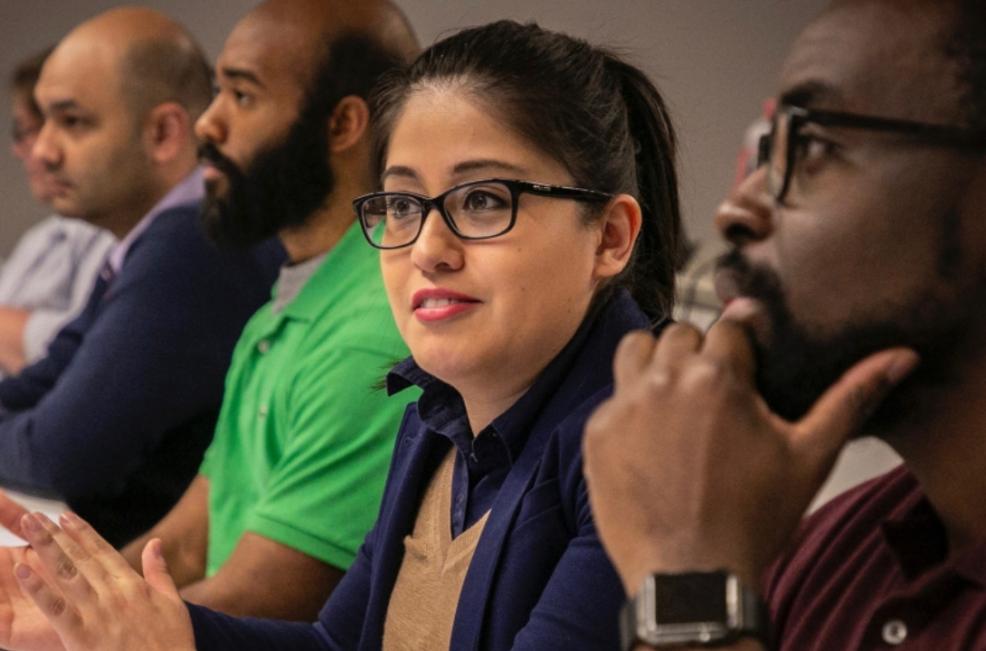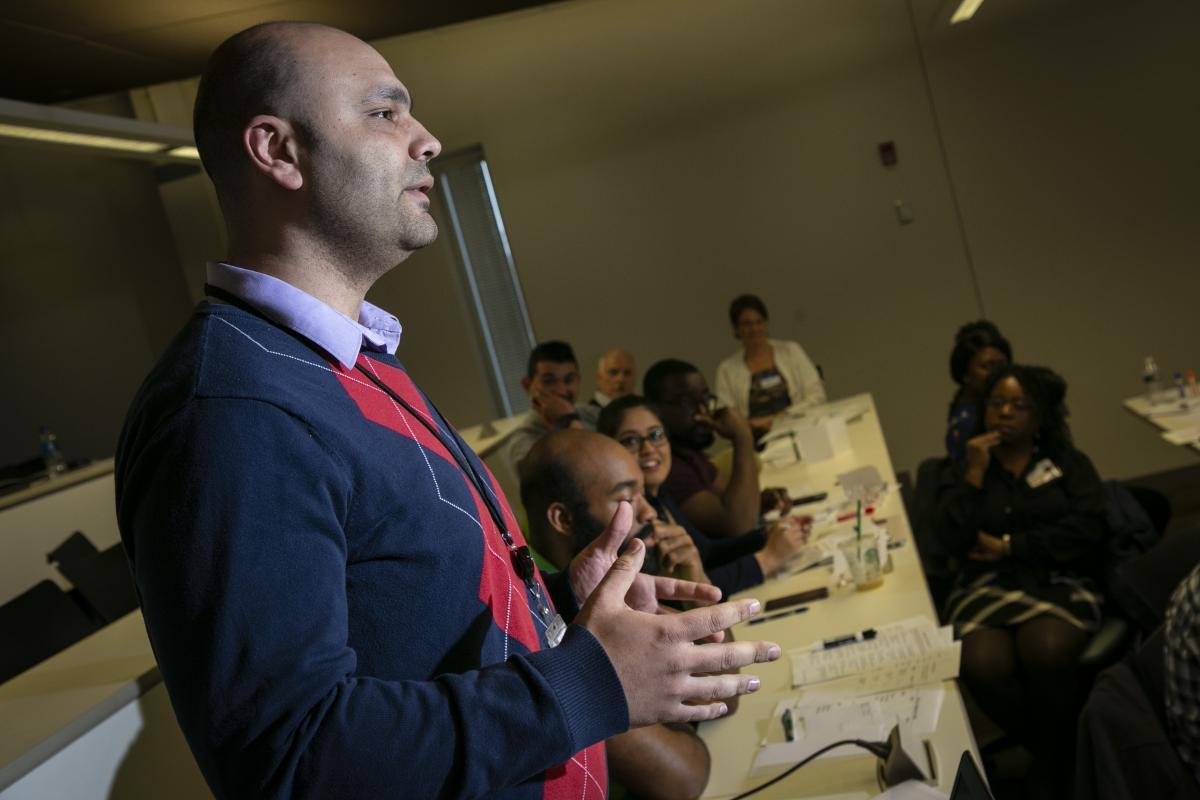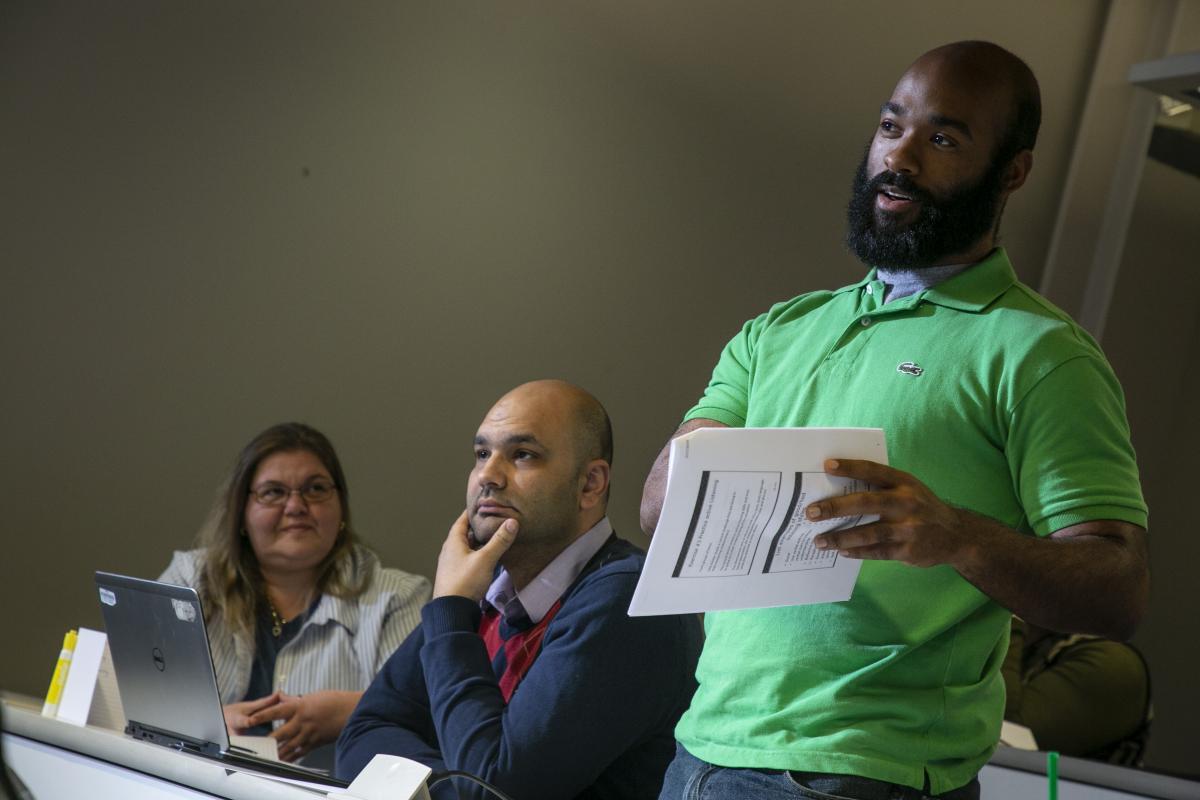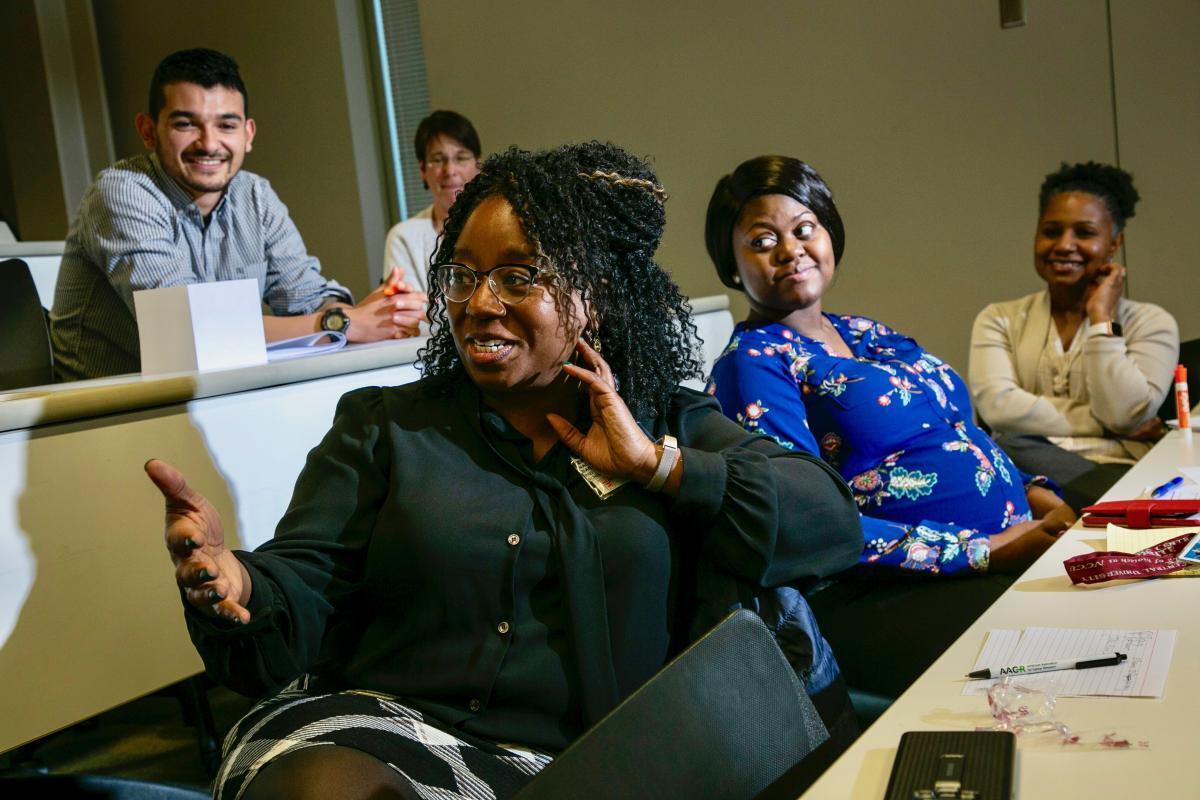On Wednesday, February 27, a cohort of six graduate students from Duke and six from North Carolina Central University plus one postdoctoral fellow from each school — gathered for a mentor-mentee communications workshop — the third in a series of trainings designed to engage underrepresented minorities from both universities in cancer research.
The workshop, held at NCCU, was part of the Cancer Research and Education Program (C-REP), the education piece of a $2 million, four-year, National Cancer Institute P20 Translational Cancer Disparities Research Partnership grant jointly awarded to Duke Cancer Institute and NCCU in 2017 for lab-based translational research projects on the molecular aspects underlying the increased lethality of prostate and inflammatory breast cancer in African Americans.
The C-REP sessions cover professional development, translational cancer disparities research, clinical research operations and community engagement.
Carla Oldham, PhD, an assistant research professor with the Biomanufacturing Research Institute and Technology Enterprise (BRITE) at NCCU co-directs C-REP with Nadine Barrett, PhD, an assistant research professor in the department of Family Medicine & Community Health and associate director of community engagement and stakeholder strategy for Duke Cancer Institute.
One cohort of under-represented minority students has already passed through the program and the second cohort is going through the program now.
Mark Dewhirst, DVM, PhD, a mentor of mentors over his 30-year career in radiation oncology and comparative oncology, led the communications workshop with these words: “The core of the mentor-mentee relationship is having good communication such that you can trust each other on both sides of the aisle.”
Directing the students to surveys they filled out that revealed their individual communication styles, he continued: “It’s important for you to learn the personality of your mentor or mentee, so you can communicate better with that person; otherwise you can have tremendous conflicts.”
Some found they were “action people.” Some “process people.” Others “idea people.” A few, “people people.”
Dewhirst, with workshop co-facilitator endocrinologist Leonor Corsino, MD, FACE, MHS, the vice director of the mentoring program — assured the students that all people types were vital for lab work.
“Because we’re different we can actually do things together as a group that we couldn’t do by ourselves,” he explained. “You have to have all kinds of people in science to be able to move it forward.”
The students spent most of the session working in small groups analyzing a series of hypothetical, often difficult, workplace communication scenarios involving mentors and mentees. Then each group selected a speaker to present, to the room, their critiques as well as their suggestions for making communications better.






